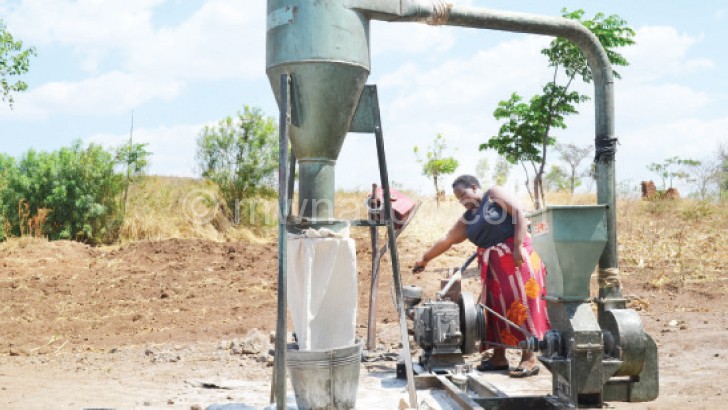Lukewarm response to collateral registry
Six months after the launch of collateral registry or personal property security system, transactions are yet to pick up largely due to a lack of mindset change, an official has said.
The establishment of a collateral registry aims at increasing the availability of credit to consumers and small-scale businesses through a robust secured lending framework.
In Malawi, as in many other developing countries, financial institutions traditionally require fixed assets, such as land or buildings to use as collateral to access loans from financial institutions.

maize mill as collateral
However, many individuals and small-scale businesses cannot get the financing they require to expand their businesses.
The collateral registry, launched in February this year, aims at giving an opportunity to Malawians to use movable assets to get a loan.
Such assets include motor vehicles, livestock, crops, maize mill, equipment, or accounts receivable.
As in many other countries, financial institutions in Malawi traditionally require fixed assets such as land or buildings as collateral for loans.
Senior assistant registrar in the Office of the Registrar General, Joseph Chintolo, said in an interview this week, collateral registry, which seeks to enable Malawians to use movable assets to get a loan, has started at a slow pace.
“So far, we have seen a slow response to the new registry but we are hoping that it would pick up. For the most part, it requires a change in mindset and we are hoping that with time, this system can open up new avenues,” he said.
Chintolo said in Ghana, for example, the collateral registry also started at a slow pace, but now businesses are worth millions of dollars.
He said they are optimistic that Malawi would have a similar impact if more people are allowed to get loans using movable assets.
Chintolo said currently, financial institutions have been trying to use the system but have faced a number of challenges.
“As you know, this is an ICT [information and communication technology] system, which requires people to be competent and trained, but we are certain that once the banks use the system 100 percent, we can feel the impact.
“It would be good if [commercial] banks and lending institutions open up to other creative ways of reaching out to some people who don’t have vehicles or houses as collateral ,” he said.
The World Bank supported the establishment of the registry with $550 000 (about K395 million) financing from the International Finance Corporation (IFC) and the International Development Association (IDA).
Malawi is the third country in sub-Saharan Africa after Ghana and Liberia to establish an online collateral registry system. n





